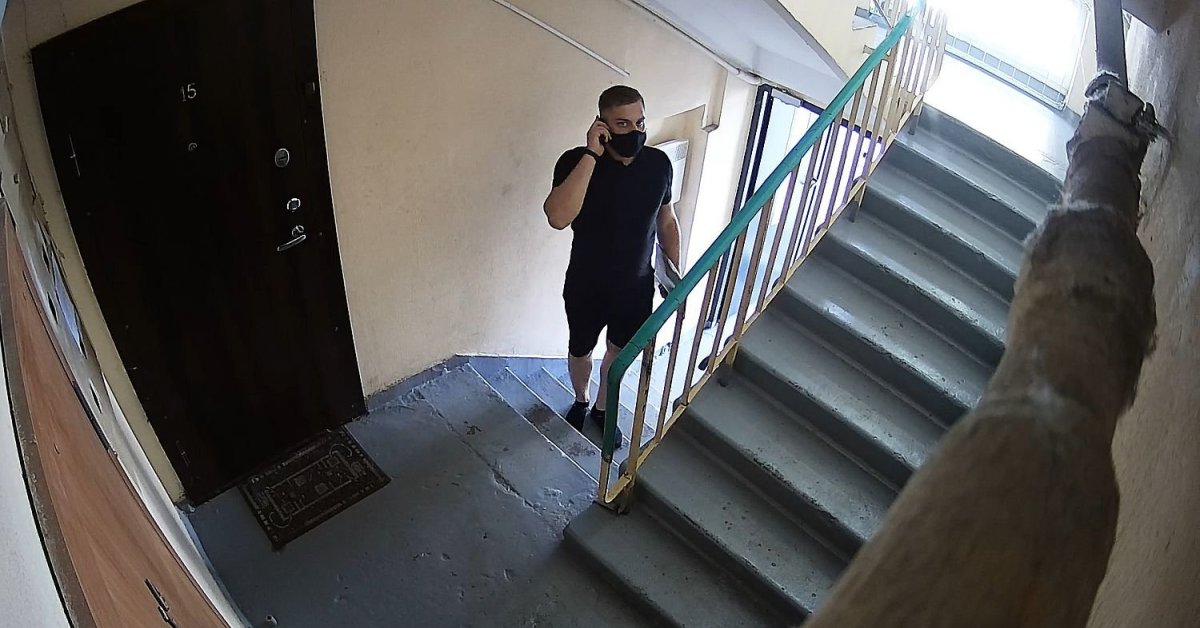
[ad_1]
August 28 at around 2:20 pm In Kaunas district, Žiegždrių village, a man called the woman’s landline, who introduced himself as a police interrogator and said that the woman is associated with people who commit crimes , so it is necessary to check your money and jewelry.
At around 3 pm the man who came home received 1,525 euros, a gold chain, a gold bracelet and 4 gold rings. The man who collected the items for inspection in the car did not return.
The woman suffered about 2,525 euros in damages. Video surveillance cameras on the apartment building’s stairwell captured a person who may have information relevant to the investigation.
For residents who recognize this person, know his or her whereabouts, or can provide any relevant information, please contact Kaunas County. VPK by phone (8700) 60129 or write an email. by mail guoda.zilinskaite@ policija.lt.
Officers from the Kaunas County Police Commissariat of the Kaunas County Police Chief Commissioner are conducting a pre-trial fraud investigation. This is subject to public works or a fine, or restriction of liberty, or arrest or imprisonment for up to two years.
The investigation is organized and directed by prosecutors from the Alytus District Prosecutor’s Office of the Kaunas Regional Prosecutor’s Office.
How do scammers work?
- Scammers often present themselves as representatives of authorized institutions or organizations (banks, police, the Financial Crimes Investigation Service, etc.) and indicate that they are investigating an alleged crime and request personal or access data from financial institutions that are alleged that help establish the truth.
- Scammers ask lots of questions, cleverly ask for extremely private information to be disclosed, and immediately use it against you, such as asking for the name of a loved one, specifying the bank they use, and then “connecting” with a representative from their designated bank, or repeat what you said earlier. name, indicating its “damage”.
- Telephone scammers who call potential victims generally pose as their family or friends, allegedly involved in accidents and asking for emergency help.
- Taking advantage of the surprise and your excitement, the scammers report a suspected traffic accident or disaster involving your loved ones and ask you to immediately transfer the amount of money they need to the specified account or hand it over to the person who will come to pick it up. .
- If this happens, do not rush to comply with the caller’s requests; Call a family member or relative yourself and see if you really need their help.
What to do when you receive such a call?
- When you receive an unexpected fraudulent call, end the call!
- Do not pick up the handset when you receive a second call. If you picked up the handset and realized that the same people were calling, hang up again.
- If you suspect that you have come across a scammer, do not rush to comply with their requests – report immediately to the police by phone 112. All complaints received by the population are recorded, analyzed, collated and linked according to common characteristics.
Remember!
The more you talk to the scammer, the more anxious you will feel and the more difficult it will be to recognize the scam.
- Do not make lightning decisions, do not pay cash and do not transfer money to the specified bank accounts to anyone unknown.
- Law enforcement officers, employees of banks and other institutions do not have the right and never ask for (dictations) personal data, bank cards, generators, electronic banking access codes, passwords, etc. by phone.
- In no case transfer money through intermediaries.
- Law enforcement officers, employees of banks and other institutions do not mediate between the victim and the offender in solving monetary problems.
In 7 months of this year, 1409 cases of fraud were registered in the country (that is, almost 4% less than in the same period last year). More than half of the frauds (55%) were detected by officials. As of September, just over 400 cases had been registered in Kaunas County, 59 of them were toll fraud cases.
[ad_2]